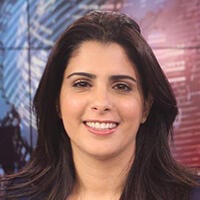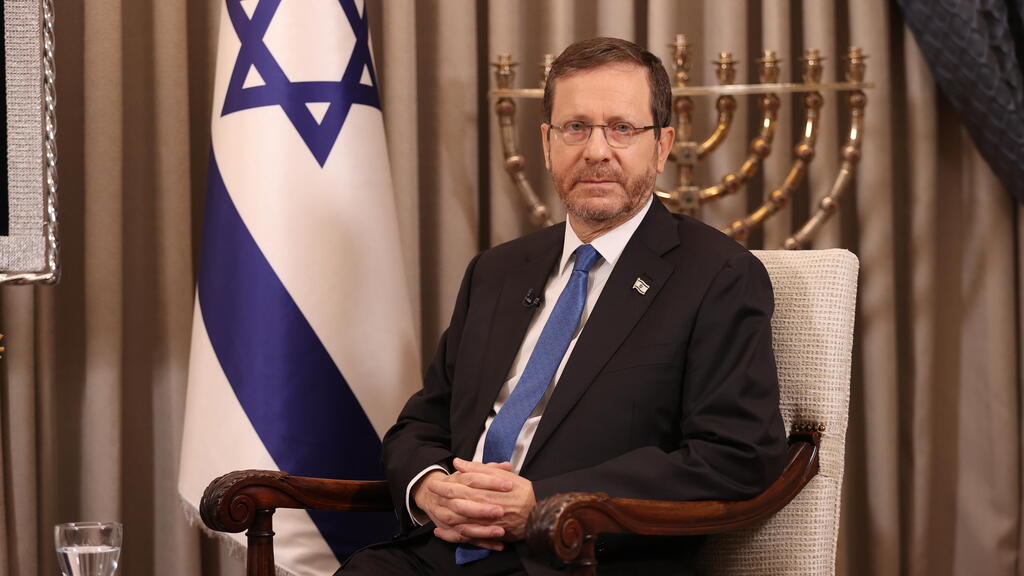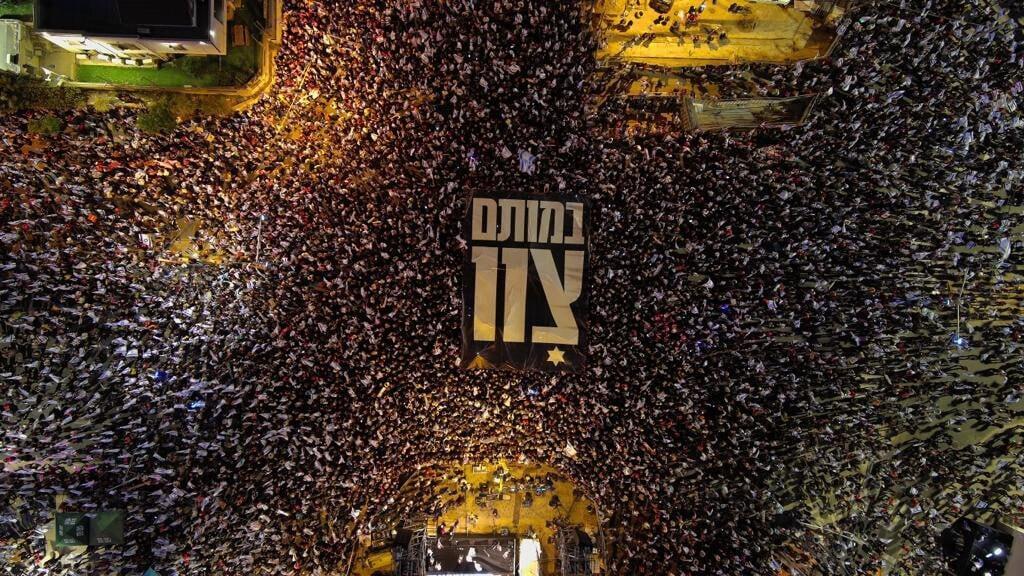Getting your Trinity Audio player ready...
President Issac Herzog said perhaps it was better to deal head-on with Israeli societal wounds now, and not wake up in 20 years to an impossible situation.
More stories:
Speaking to Ynet on the occasion of Israel's 75th anniversary, the president said this crisis that was brought to the fold over the government's judicial overhaul would ultimately make Israelis stronger.
It is doubtful that less than two years into his term as president, Herzog could have imagined the country would be embroiled in so many controversies. He was elected in July of 2021 in the midst of an ongoing political crisis that still seems unresolved, but he too did not expect the months since the November elections and the seating of the new government in December, to witness mass demonstrations around the country and a growing societal rift.
Nothing was spared, including the IDF and now the grieving families of fallen soldiers too with violence awaiting the slightest spark to ignite.
Israelis wonder if they still share the same Zionist dream and if modern Israel like its ancient predecessors is doomed to exist for no more than a few decades.
As a politician, Herzog was never thought overly emotional. On the contrary. His speech was always monotonous, and his expressions tempered, depicting the words of a cold and focused man. This made his recent public appearances all the more dramatic. He has been unable to hide his concern over the drama that has engulfed Israel in general and himself in particular.
The pressure is set to reach its peak, as the country marks Memorial Day for those who died over its defense or by terror attacks, and soon after, marks the Day of Independence.
Meanwhile representatives of the coalition and the opposition, at the president's invitation, have been meeting to search for common ground and an agreement on a judicial overhaul after the government's rush to push through laws seen by many of its opponents as nothing less than an end to democracy.
"Beyond the questions that have daunted us since the early days of Zionism, questions over the balance between Jewish and democratic, the place of religion in our lives and the limitations on authorities, there are many psychological elements," Herzog said.
"We are a people who gathered from 100 different places. This resonates with people who experienced trauma, such as Argentina or Romania. They are aware of the impact a judiciary can have on the life of a nation. Ancient history, and the destruction of the independent Jewish nation, also resonates with some."
Does the judicial overhaul present such an explosive risk?
"The judicial overhaul, things that happened around the formation of this government, the coalition agreements – it is all exploding at once. The overhaul is the crux of it and is seen in some quarters as altering the world order. I think it is an evolutionary process, when we get through it as a society, with agreed outlines, we could emerge stronger. The same has happened in other nations. We must do all we can to prevent the alternative, an irreparable split."
The coalition says we were given the majority to enact our policies while the opposition refuses to accept the results of the ballot
"The Zionist movement and the state that followed had always made sweeping changes with broad agreements, compromises and dialogue."
This is possibly the most challenging time for a president, did you consider quitting over the criticism directed at you?
"I believe I enjoy public trust. There are many who hope to foil any understanding and compromise but behind closed doors, there is not only goodwill but serious discussion taking place in a responsible manner, with wisdom and the understanding that the alternative to a compromise solution would be much worse."
Do you understand what really brought about a halt in legislation?
"This is the most serious internal crisis since the establishment of the state which affects all aspects. The world is looking at us, our enemies are celebrating, and our friends are concerned. I am asked what is going on. I am told that they need us stable and strong. The world of finance works by clear rules which are the basis of reports such as Moody's. They examine the strength and independence of our judicial system. Those are facts. We do not exist in a vacuum."
Israel's relationship with the United States is weakening and President Biden refuses to invite the prime minister to the White House. How concerning is this and what is being done to resolve it?
" Our alliance with the U.S. is deep and touches many aspects of our lives. Anyone who visits there must understand the magnitude of its strategic importance to our security. Therefore everything possible must be done to preserve that relationship. There is mutual respect between our governments, and I hope the visit to Washington by Prime Minister Netanyahu would be resolved politically."
What are the chances that we will see peace with Saudi Arabia soon? They are strengthening ties with Iran.
"I think this is of strategic importance. The Abraham Accords are the basis and must be expanded to other nations. This is part of a meaningful historic process between the Jewish and Muslim worlds. Many forces are actively attempting to disrupt it, including Iran and its proxies for the most part. Undoubtedly, some of our challenges, impact the pace of progress. Not just the judicial crisis, but other factors as well. We must act carefully with respect to Temple Mount and must be careful to maintain our relations with our allies. These are things that will affect our lives and our future."
What are world leaders telling you?
I hear the concern and am asked many questions. On the other hand, there is a deep appreciation of Israel, its vibrant democracy, originality and entrepreneurship, and daring.
1.
2.
3.
4.





